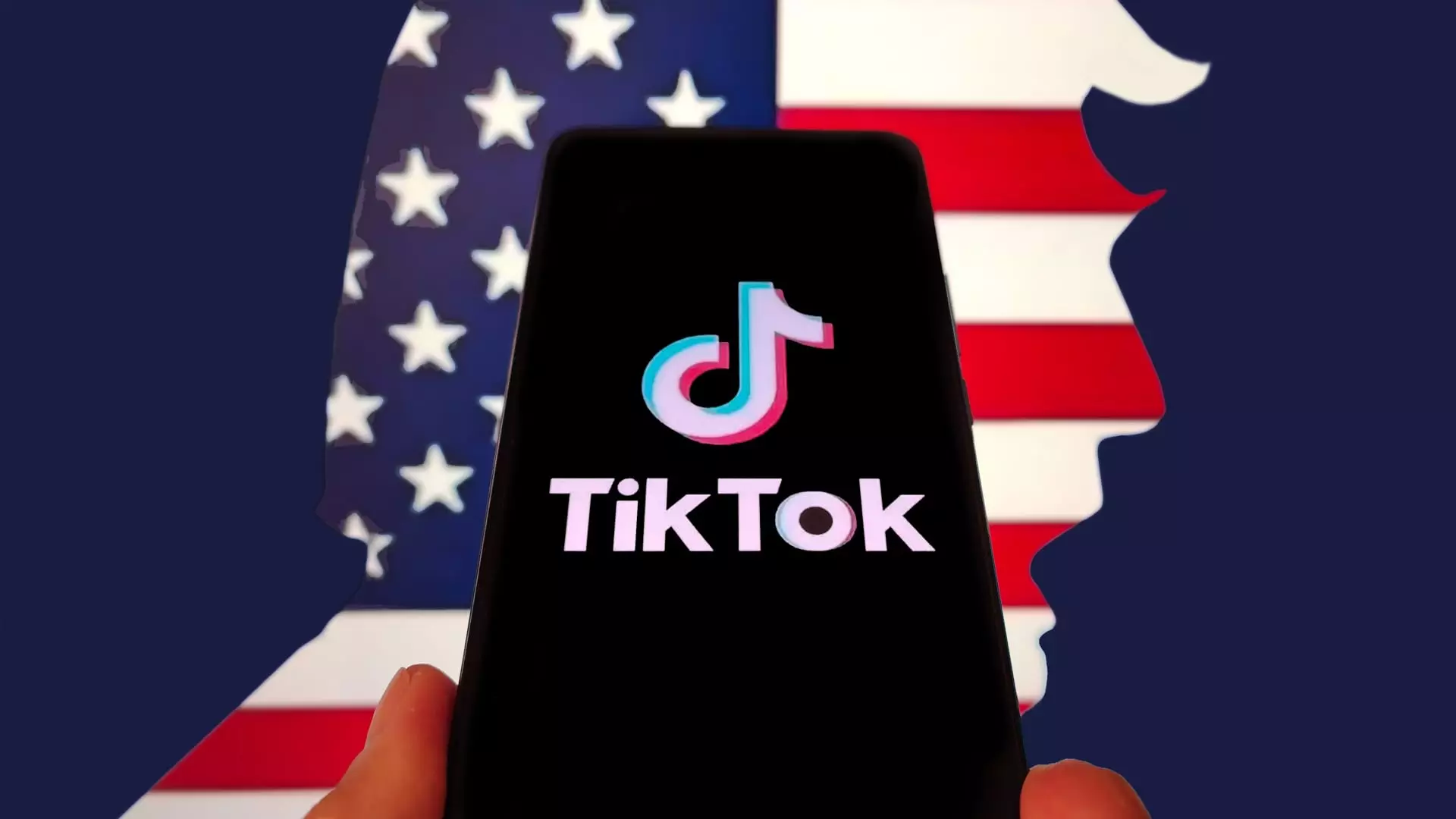In the ever-turbulent world of technology and international relations, the saga of TikTok continues to unfold, revealing not just a battle for app dominance, but a deeper contention between the United States and China. The recent developments illustrate how political maneuvering can both dictate and dictate the fate of popular social media platforms. Apple, with its significant stake in the battle of the apps, has opted to keep TikTok available in its App Store for an additional 75 days, following assurances from Florida Attorney General Pam Bondi. But this move is less about consumer choice and more about navigating a complex web of geopolitical tensions.
Assurances and Implications
The confidence expressed by Bondi, promising Apple immunity from repercussions for hosting TikTok, speaks volumes about the political climate surrounding the app. At a time when national security concerns over data privacy loom large, the U.S. government seems to be leveraging this critical moment to project strength, while remaining open to negotiations with ByteDance. President Trump’s decision to extend the deadline for a potential ban – a tactical maneuver that showcases his administration’s unpredictable nature – highlights how ephemeral alliances can be and how the stakes are elevated in the digital realm.
The crux of this situation reveals that the political landscape remains volatile. The ramifications should ByteDance fail to divest its U.S. operations are far-reaching, not just for TikTok users, but for the larger technology ecosystem. This situation forces us to consider: can a national security framework truly coalesce with the innovative, free-spirited ethos of Silicon Valley? The juxtaposition is stark, as corporate giants navigate their roles amid shifting policy landscapes.
The Tariff Narrative
As Trump articulates a dual strategy of extending tariffs while also hinting at potential reductions to facilitate a sale, we are left to ponder the intentions behind such a mixed messaging. The announcement of cumulative tariffs of 54% on China deepens existing trade tensions and reflects the broader sentiment of America’s competitive posture. But what does this mean for everyday Americans? Striking the balance between security and commerce is not straightforward, and the economic implications of tariff adjustments can reverberate far and wide.
As we look forward, one can’t help but wonder how Silicon Valley companies will adapt to these evolving risks. Will we see a surge in U.S. tech companies striving to innovate beyond foreign ownership constraints? Or will consumer demands continue to overshadow national security fears? Apple’s position as a gatekeeper in this unfolding drama accentuates the broader questions faced by tech companies: will they act as passive vessels or active participants in shaping their regulatory futures?
Time Will Tell
As the 75-day countdown ticks forward, the interplay of technology, politics, and public sentiment will undoubtedly shape the outcome of this conflict. With the path ahead fraught with uncertainty, this moment marks a significant juncture in the interplay between corporate responsibility, government oversight, and global commerce. The implications of Apple’s decision will resonate beyond TikTok, inviting scrutiny of the intersectionality of social media and statecraft in an era of rapid digital transformation.
The world is watching closely, as this story unfolds, not just for its immediate effects, but for the foundational implications it holds for future tech governance in a system that seeks to balance liberty and security.

